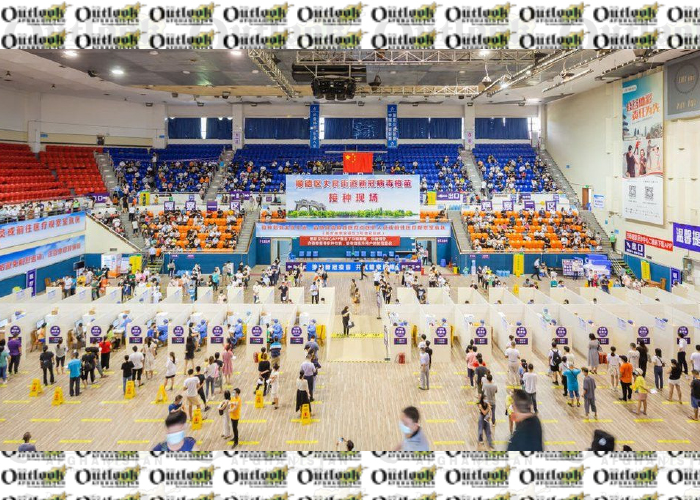BEIJING - China has administered more than a billion Covid vaccine doses, officials say - more than a third of all vaccine doses given globally.
The country's vaccination drive began slowly after authorities successfully suppressed virus cases.
But incentives such as free eggs and concern over an outbreak of the Delta variant have seen jabs accelerate.
Chinese authorities aim to have fully vaccinated 40% of the country's 1.4 billion population by July.
People in China are being offered domestically made Chinese vaccines, including the Sinopharm and Sinovac vaccines. Both require two doses.
After lockdowns and mass testing prevented the virus from circulating, many Chinese felt little need to get vaccinated. Previous vaccine scandals had also left some people wary.
However the pace of vaccinations has rapidly increased and China's National Health Commission said it had taken just five days to administer the latest 100 million doses.
An outbreak of the Delta variant in the southern province of Guangdong has also convinced some Chinese to be vaccinated.
Doctors in the southern city of Guangzhou told the New York Times that symptoms from the new variant appeared to be different and more dangerous than those linked to the initial form of the virus that began spreading in the city of Wuhan at the end of 2019.
The newspaper quoted a resident of Shenzhen, a city near Guangzhou, who said she had not wanted to be vaccinated because of possible side effects but had now changed her mind.
"I want to get vaccinated, but it's really hard to make an appointment now," the 27-year-old said, adding that incentives such as free eggs or free rides to vaccination centres were no longer being offered.
Other regions have been offering a range of modest incentives. The central province of Anhui has also been offering people free eggs while some in Beijing have received shopping vouchers.
The National Health Commission says it aims to have fully vaccinated 70% of the population by the end of the year.
Three Chinese vaccines have been authorised for emergency use within the country. Two - the Sinopharm and Sinovac vaccines - have been approved for emergency use by the World Health Organization (WHO).
They are both already in use in a range of other countries, including the Philippines, Chile, Brazil, Indonesia, Mexico, Thailand and Turkey.
The WHO said the Sinopharm vaccine's efficacy for symptomatic and hospitalised cases of Covid-19 was estimated to be 79%.
It said the Sinovac vaccine prevented symptomatic disease in 51% of those vaccinated and prevented severe symptoms and hospitalisation in 100% of samples. (BBC)
Home » World » China Administers a Billion Vaccine Doses
China Administers a Billion Vaccine Doses

